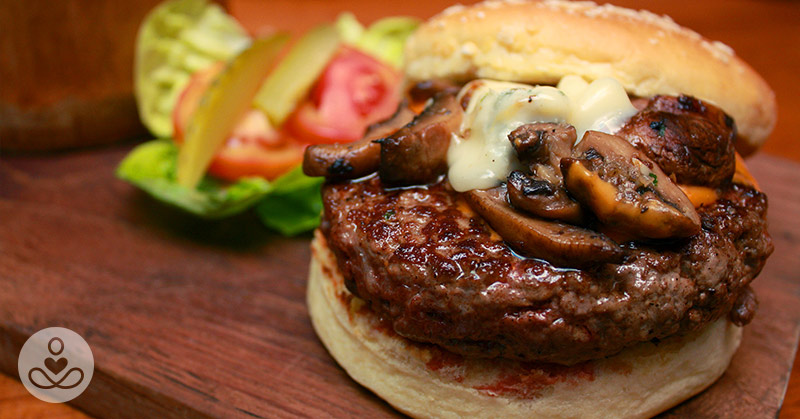Diet tips are becoming confusing. What’s healthier, a high- or low-fat diet, high- or low-carb, or high- or low-protein? What’s better, eating whole grains or skipping grains, coffee or no coffee, raw foods or cooked, going vegan or eating meat? The list of questions goes on and plagues every individual interested in improving their health. The answers vary based on the person being asked and what is trending. Often experts argue over the different approaches, leaving the audience unsure of who to trust.
Is one of them being paid by a member of the food industry, or perhaps leaning on faulty evidence to back their claims? With obesity, diabetes, and other related health issues on the rise, experts are determined to uncover a method of bringing the public’s health back under control. However, while many of them are determining — and arguing about — what to eat, the question of when to eat has been left unresolved.
The Rise of Snacking
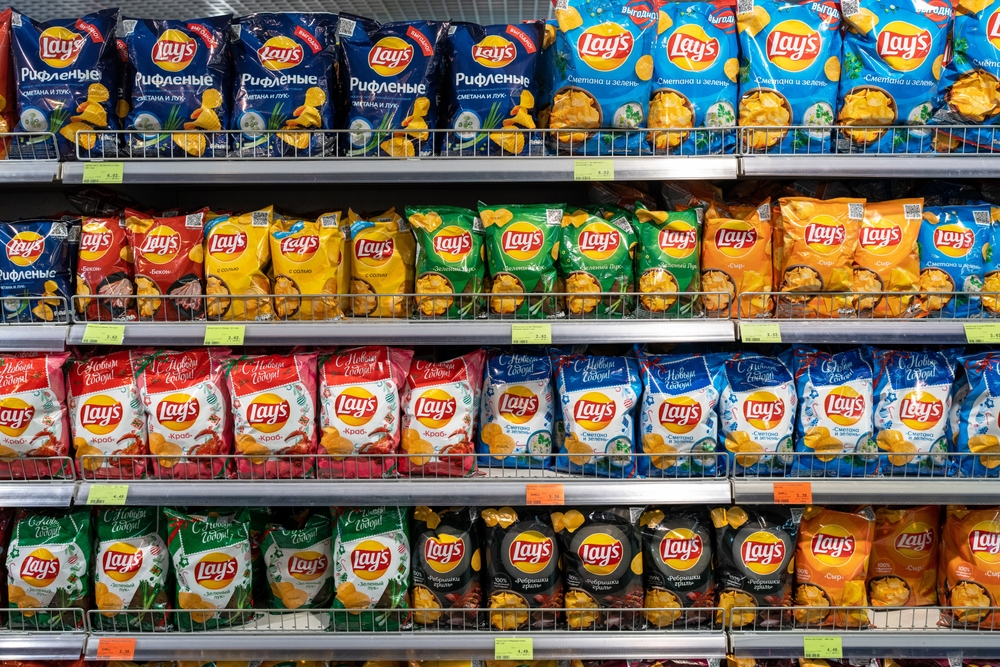
Dr. Jason Fung, is a nephrologist, the founder of the Intensive Dietary Management Program, and has particular expertise in type 2 diabetes reversal and intermittent fasting. He proposed a daring case for people to eat dinner at two in the afternoon, without any snacks afterward.
Let’s start at the beginning. Eating patterns have drastically changed since the 70s. Then there were only three set meals a day — breakfast, lunch, and dinner — and not much leniency for regular snack times. For example, an after-school snack was not a thing since it might ruin the child’s appetite for dinner. It was not considered to be healthy or necessary, except for the very occasional treat.
Nowadays, snacks are a mainstay in the average diet. Many people are eating six times a day with many of our regular activities now tied to food. When we watch movies, we eat popcorn, pretzels, and chips. Even while we work, many of us are munching on a snack of choice, with the all-important coffee by our side, filled with sugar and cream. How many of us keep protein bars, nuts, or some other food in the car ‘just in case’?
As most people are constantly eating, no wonder obesity rates are rising!

Some nutritional authorities claim that eating multiple times a day is a healthy practice because it boosts metabolism. This is a myth funded by snack food companies that has been proven to be untrue. [1] Yet most people are in the habit of continuously eating throughout the day.
This rise in obesity is not unique to the U.S., Chinese citizens as well have increased their snacking. Surveys show that from 1991 to 2009 children aged 13–18 went from 8.7% snacking to 46.3% while adults showed a similar rise from 8.7% to 35.6%. With this comes the rise of obesity in China and the prevalence of diabetes. [2]
Read More: Intermittent Fasting Has Been Linked to Higher Risk of Cardiovascular Death. Should You Worry?
What Happened When People Were Instructed When to Eat
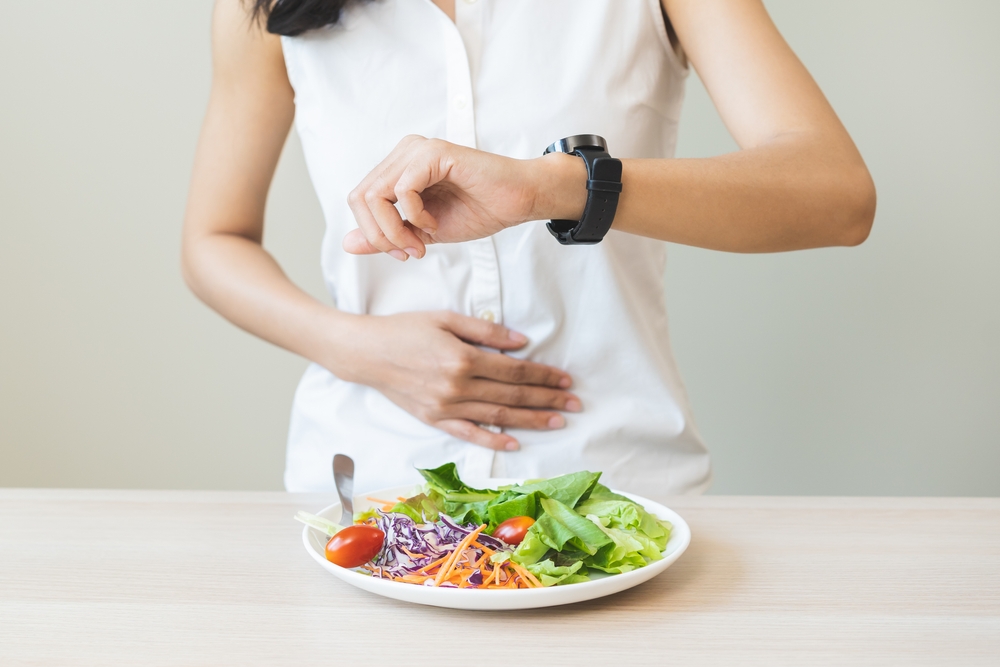
Satchidananda Panda conducted a recent study by tracking eating habits through a smartphone app. They found that 10% of the people who didn’t eat as frequently as others ate about 3.3 times a day. About 90% of those involved ate over 3.3 times a day. Those who topped the list as eaters ate a whopping ten times a day.
We have created the habit of eating as soon as we get up until we go to sleep. In fact, the average amount of time spent eating totaled 14.75 hours a day, almost every waking moment in day-to-day life. The 70s three-meal style totaled about 10 hours of eating. There was also a lot of late-night eating recorded with an estimation of 25% calories consumed in the morning and 35% after six in the evening.
When overweight participants eating over 14 hours a day were guided to shorten their eating times to 10–11 hours, they lost on average 7.2 pounds and felt better overall. Notice that they were not instructed what to eat, only when. [3]
Read More: Water Fasting: What Are The Benefits and Drawbacks?
Eat Dinner at 2 PM
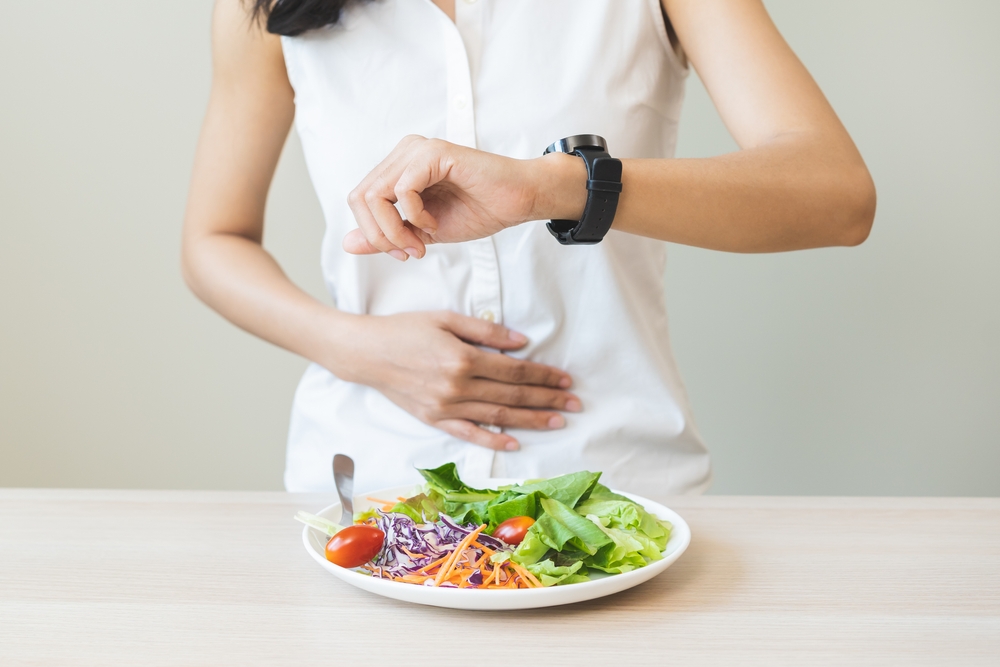
Another randomized study researched the effects of eating in the evening. The participants were men with diabetes and were split into two groups, one allowed to eat between 8 am and 8 pm, and the other only between 8 am and 2 pm. Both groups ate three meals a day of the same food.
The effects were incredible. Mean insulin levels, insulin resistance, and blood pressure dropped for those in the group who stopped eating at 2 pm, even after they switched groups and began eating until 8 pm.
One might think the group with the stricter time restriction would feel hungry come the evening; however, the opposite was true. They had less of a desire and capacity to eat at that time. Instead of fighting hungry urges, the group merely followed their body’s wish not to eat anything more.
Bottom Line
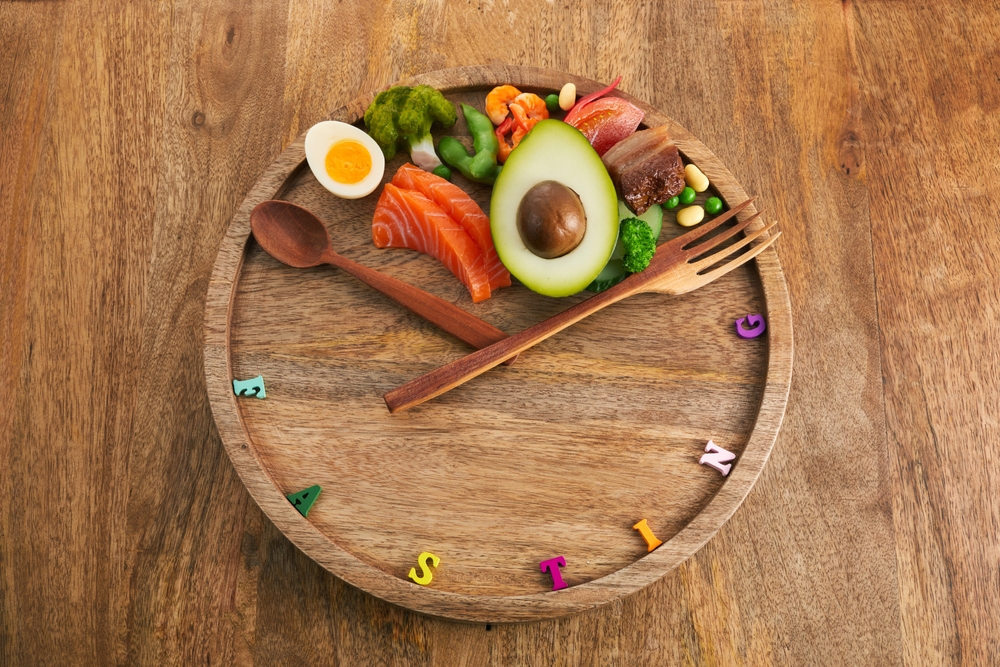
It’s important to note that it took these individuals about 12 days to accustom themselves to this new style of eating. On average, it may take about three to four weeks to adjust, so if you give this regime a try, don’t give up after a couple of days.
One of the biggest challenges of eating dinner at 2 pm is the social aspect. Most people are working at that time, so the main meal of the day is pushed into the evening to spend with family. The transition is difficult but it has unmistakable metabolic benefits and may give burned-out dieters a new start. [4]
Read More: Truths and Lies About Fasting That Everyone Should Know
Sources
- MJ Munsters, WH Saris. Effects of meal frequency on metabolic profiles and substrate partitioning in lean healthy males. https://www.ncbi.nlm.nih.gov/pubmed/22719910 June 13, 2012
- Asia Pacific Journal of Clinical Nutrition. Trends in Chinese Snacking Behaviors and Patterns and the Social-Demographic Role between 1991 and 2009 https://www.researchgate.net/publication/224051671_Trends_in_Chinese_Snacking_Behaviors_and_Patterns_and_the_Social-Demographic_Role_between_1991_and_2009 June 2012
- Shubroz Gill. A Smartphone App Reveals Erratic Diurnal Eating Patterns in Humans that Can Be Modulated for Health Benefits https://www.cell.com/cell-metabolism/fulltext/S1550-4131(15)00462-3
- September 24, 2015[4] Dr. Jason Fung. The Critical Importance of Time Restricted Feeding in Weight Loss https://medium.com/@drjasonfung/the-critical-importance-of-time-restricted-feeding-in-weight-loss-fe1dad80d279 May 30, 2018
